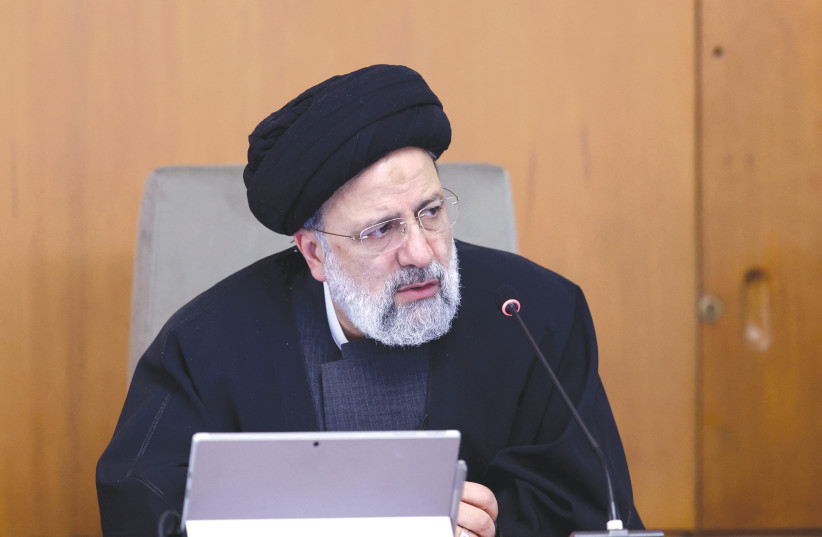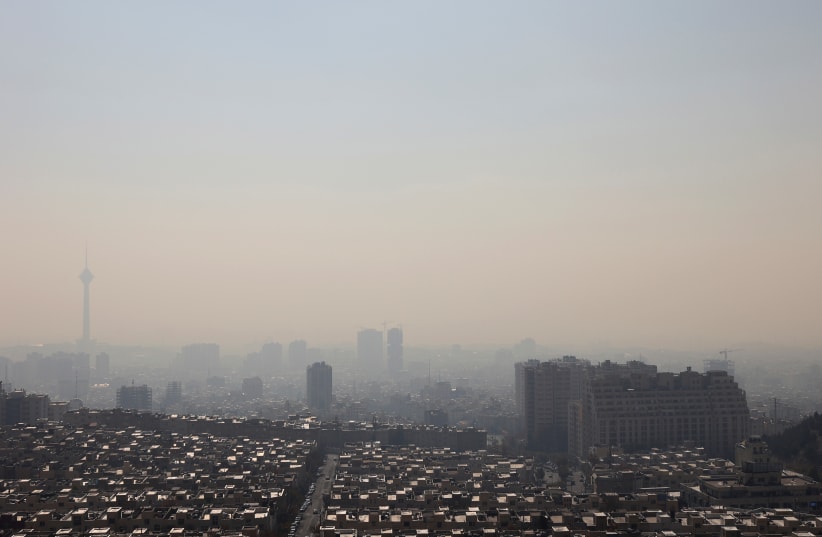The Middle East Media Research Institute (MEMRI) in late March published a plan of action to block the Islamic Republic of Iran’s burning desire to develop a nuclear weapons device.
The US organization MEMRI declared that Tehran’s intense efforts to enrich weapons-grade uranium for an atomic bomb warrants “immediate action on the part of the West.”
In the first week of March, US Joint Chiefs of Staff chairman General Mark Milley told Congress: "Iran could produce fissile material for a nuclear weapon in less than two weeks, and would only take several more months to produce an actual nuclear weapon.”
MEMRI’s report calls for “regional alliances” to blunt Iranian regime jingoism. ”Iran is sensitive to regional political or military alliances, even when they are not explicitly against it. This is particularly true for alliances between Sunni countries (and all the more so ones involving Israel). The fact that Saudi Arabia has shown willingness for rapprochement with Iran, having even invited Iranian President Ebrahim Raisi for a state visit, does not distance the Saudis from the Sunni camp to which they naturally belong, “wrote MEMRI’s president Yigal Carmon and Ayelet Savyon, Director of MEMRI’s Iran Studies Project.


MEMRI’s report is titled: “Curbing Iran's Ambitions Is Vital For Impeding The New China-Russia-Iran Axis.”
What did the report say?
Any decision against Iran by the UN Security Council could have an impact on the Islamic republic, according to the report. United Nations white papers listing the terror attacks that were carried out or planned by Iran and its proxies, as well as the internal persecution and execution of anti-regime protestors, would have a significant impact.”
According to MEMRI, such UN reports “could demonstrate that Iran is a terrorist state both domestically and internationally. They would expose the fact that several Islamic republic officials have Interpol warrants out against them, and that in 1988 and 2019, the US sanctioned ‘the Hangman’, Iran's now-president Ebrahim Raisi, for his role in the brutal and bloody 1988 execution of thousands of political prisoners, including many academics.”
MEMRI also notes that UN reports “would also expose the fact that the regime continues subversive activities throughout the world” and pro-Iran regime academics such Hossein Mousavian at Princeton University and Mohammad Jafar Mahallati at Oberlin College. Seyed Hossein Mousavian was Tehran’s ambassador to Germany in 1992 when Iran’s regime authorized the assassination of four Iranian dissidents in the Greek restaurant Mykonos in Berlin.
A Berlin court found that Iran’s embassy at the time in the city of Bonn “served as the headquarters for the terrorists involved” in the murder of the Iranian dissidents.
Amnesty International has repeatedly accused Mahallati of covering up crimes against humanity when he served as the Islamic Republic’s ambassador to the UN from 1987-1989. Amnesty and Iranian dissidents accused Mahallati of playing a key role in defending the regime’s mass murder of 5,000 Iranian political prisoners in 1988.
MEMRI seeks that “sanctions against Iran should be implemented in accordance with former Secretary of State Hillary Clinton's description of them: crippling. First and foremost, the [UN ] snapback sanctions should be activated.”
The Hamburg-based European-Iranian trade bank (EIH) has been provided services to nuclear proliferation and weapons exportations entities in Iran, according to the US and EU. The EIH was cited as example of a bank that Germany’s government allows to operate and process transactions for German companies. Germany’s government has refused to shut the EIH.
The German Christian Democratic Union party MP Norbert Röttgen told the Kölner Stadt-Anzeiger in March that Germany should pull the plug on its economic relations with Iran. “Trade with a regime that is so inhuman should no longer be possible," said Röttgen, adding "This clear message should be sent together by German politics and business." Röttgen's comment appears to be the first call by a major Bundestag politician calling for an end to the over $1 billion annual German-Iran trade relationship.
The southwestern German state of Baden-Württemberg under the Green Party governor Winfried Kretschmann permits a flourishing level of trade between engineering companies and the Iranian regime. Krempel, a German company from Baden-Württemberg, sold material to Iran’s regime that was used in Iranian produced chemical missiles to gas Syrian civilians in 2018.
MEMRI mirrored Röttgen’s call for the EU and Germany to designate Iran's Islamic Revolutionary Guards Corps (IRGC) as a terrorist organization. The US classified the IRGC a foreign terrorist entity in 2019. MEMRI also urged the German city-state of Hamburg to close the Iranian regime-controlled Islamic Center of Hamburg. The center has repeatedly celebrated the life of the late IRGC military official Qasem Soleiman, who was responsible for the murders of over 600 American military personnel in the Middle East, according to the US government.
MEMRI wrote that “during years of sanctions, the U.S. transferred billions of dollars to Iraq from the Federal Reserve. At least a big portion of these transfers found their way to Tehran, through official or unofficial channels. This was only stopped a few weeks ago. There might be other similar exploits in the sanction mechanism that give the Islamic regime a lifeline.”
The think tank advocates “open condemnation of Iran's aggression against the West. It is noteworthy that even as Iran openly threatens to assassinate senior American officials, as well as dissidents living abroad, no meaningful condemnation comes from America and the West.”
Some other key points in MEMRI’s plan include that the “West should not send messages reassuring the regime that there are no Western intentions of regime change in Iran, as the US has reportedly done. ”The report adds that “Support for the anti-regime protests. For example, renaming of streets on which Iranian embassies in the West are located after Jina (Mahsa) Amini, the Kurdish-Iranian woman who died at the hands of Iranian authorities.”
MEMRI said that “Western diplomats' refusal to appear at diplomatic events attended by Iranian representatives.” Poland and Hungary recently defied the unofficial EU policy to not celebrate the date of the founding of Islamic Republic.
The think tanks wrote “Since Iran's Islamic regime has executed soccer players and wrestlers for having expressed support for the anti-regime protests, Iran's national soccer and wrestling teams should be sanctioned.”
MEMRI calls for “Support for trade strikes and labor unrest in Iran” and "Attention should be drawn to the environmental damages caused by the Islamic republic, like the drying up of water sources in Esfahan.”
The Islamic Republic of Iran’s Supreme Leader Ali Khamenei must be called out for his lie regarding the supposed fatwa (religious order) issued by him that bans nuclear weapons. According to Fox News Digital, Iran’s regime declined to produce the fatwa when asked for a copy of the religious document.
“The US should confront the Islamic republic's lies that ISIS was created by an American conspiracy, that Iran preserves freedom of navigation in the Persian Gulf,” wrote the authors.
